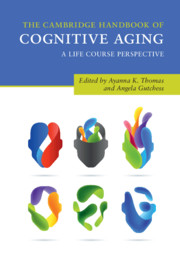Book contents
- The Cambridge Handbook of Cognitive Aging
- The Cambridge Handbook of Cognitive Aging
- Copyright page
- Contents
- Figures
- Tables
- Contributors
- Introduction
- Part I Models of Cognitive Aging
- Part II Mechanisms of Cognitive Aging
- Part III Aging in a Socioemotional Context
- Part IV Cognitive, Social, and Biological Factors across the Lifespan
- Part V Later Life and Interventions
- Index
- Plate Section (PDF Only)
Introduction
Published online by Cambridge University Press: 28 May 2020
- The Cambridge Handbook of Cognitive Aging
- The Cambridge Handbook of Cognitive Aging
- Copyright page
- Contents
- Figures
- Tables
- Contributors
- Introduction
- Part I Models of Cognitive Aging
- Part II Mechanisms of Cognitive Aging
- Part III Aging in a Socioemotional Context
- Part IV Cognitive, Social, and Biological Factors across the Lifespan
- Part V Later Life and Interventions
- Index
- Plate Section (PDF Only)
Summary
Decades of research have demonstrated that normal aging accompanies cognitive change. Much of this change has been conceptualized as a decline in function. However, age-related changes are not universal. Oft-found decrements in older adult performance may be moderated by experience, genetics, and environmental factors. To date, cognitive aging has largely emphasized biological changes in the brain, with less evaluation of the range of external contributors to behavioral manifestations of age-related decrements in performance. The goal of this book is to examine cognitive aging through the lens of a life course perspective. Understanding cognition within the context of both the life span (aging) and the life course (experience) is a relatively new approach to the field of cognitive aging. However, the approach has already pushed the field forward in theoretically and practically important ways.
- Type
- Chapter
- Information
- The Cambridge Handbook of Cognitive AgingA Life Course Perspective, pp. 1 - 2Publisher: Cambridge University PressPrint publication year: 2020

